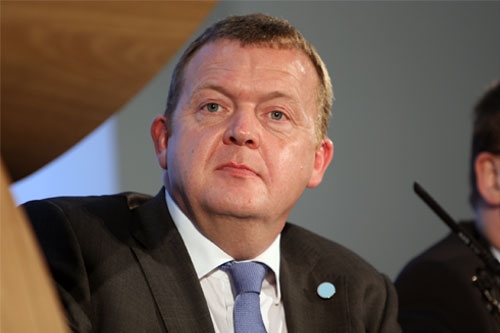
By Nicky Dempsey
Denmark’s rightist government is the latest in the EU to fall because of its handling of the economic crisis. Prime Minister Lars Løkke Rasmussen announced on Friday 26 August that Denmark will hold parliamentary elections on 15 September.
The government fell immediately after Rasmussen’s Liberal Party-led coalition failed to secure a Parliamentary vote in favour of a stimulus package. The government’s stimulus measures were a blatant manoeuvre in response to the Social Democrats modest stimulus proposals. While the Social Democrats focused on bringing forward government infrastructure projects and promised to create 17,000 new jobs, the government’s measures centered on insisting that homeowners purchase a new home before putting their existing one up for sale in a vain attempt to stem the glut of homes for sale which was criticised as foolish even by the Danish mortgage lenders’ association. The government supplemented this with deregulation measures and the vague assurance that this would create 1,000 jobs. Danish unemployment stood at 161,000 in June.
Opinion polls project that the ruling ‘Blue Bloc’ will win just 79 seats in the election versus a projected total of 96 seats for the Social Democrat-led ‘Red Bloc’.
The economic situation remains dire. After a modest recovery in 2009, the economy has begun to contract once more in the latest two quarters and is now 5% below its peak level at the end of 2007. Two important banks have collapsed this year and the losses incurred leave the rest of the financial system teetering on the brink. In addition to rising unemployment, the housing market is in a slump.
Earlier this year the government allowed a number of banks to default on their bondholders, mainly Danish and other EU banks. Despite apocalyptic forecasts from the financial sector this has not led to a general crisis of government funding. Even after the government’s fall, interest rates for Danish government debt remain very close to the lowest in the EU – Germany. Denmark may still have scope to finance government investment, with official forecasts that the public sector deficit will be below 4% of GDP this year although it is projected to rise in 2012 reflecting the renewed economic contraction.
All across Europe governments are collapsing where they fail to deal with the effects of the crisis, or in some cases the renewed downturn. Denmark may also be significant internationally as it has been commonplace to suggest that the political landscape is dominated by the right. However modest, the Danish Social Democrats’ insistence on government investment measures to address the crisis is clearly popular. This is a lesson for the European left.
